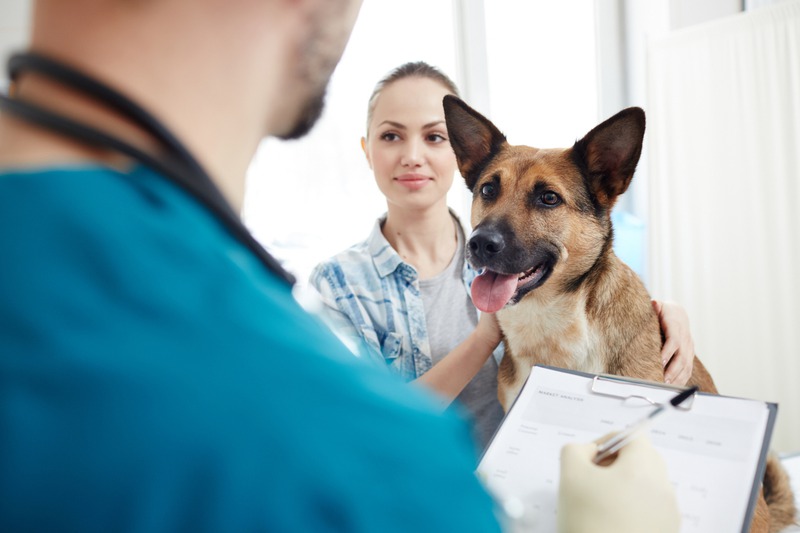When it comes to the health and happiness of our furry family members, we’re always looking for the best ways to ensure they lead a long and fulfilling life. Preventive vet care is the cornerstone of keeping our pets healthy. Much like humans benefit from regular check-ups, our pets also need routine visits to the vet. But why is it so important, and what does it involve? In this article, we’re going to chat about the upsides of preventive care for your pets, how it can save you from heartache, and why it’s a critical piece of responsible pet ownership.
Understanding Preventive Vet Care
Preventive vet care is all about taking proactive steps to ward off potential health issues in your pet. It involves regular check-ups, vaccinations, dental care, parasite control, and getting the right advice on nutrition and exercise. We’ll break down the key components of preventive care and how each plays a vital role in your pet’s overall well-being.
Regular Health Check-Ups
Imagine being able to catch a health problem in your pet before it becomes serious. That’s exactly what regular health check-ups are designed to do. These visits to the vet are crucial for early detection of conditions that could potentially become major issues if left untreated. Here’s what a typical check-up might involve:
-
Physical examination
-
Weight check and dietary advice
-
Bloodwork to check for internal issues
-
Discussion of any behavioral changes
It’s all about getting a comprehensive view of your pet’s health and nipping any concerns in the bud.
Vaccinations
A pet vaccinations clinic in Pittsboro is your go-to destination for protecting your pet against various infectious diseases. Vaccines are a preventive measure that can save your pet’s life. Core vaccines are essential for all pets, while non-core vaccines might be recommended based on your pet’s lifestyle. Regular vaccinations provide immunity against common diseases and prevent outbreaks in the pet population.
Dental Care
Did you know that by the age of three, most dogs and cats show some signs of dental disease? That’s why consulting a cat dentist or a dog dental specialist is just as important as your pet’s regular check-ups. Professional cleanings, combined with home dental care, can prevent bad breath, gum disease, and tooth loss. Plus, it can also help detect dental problems early on.
Parasite Prevention
Parasites like fleas, ticks, and worms can be more than just a nuisance; they can cause severe health issues ranging from allergic reactions to serious diseases. Preventive treatments are the best way to keep these critters at bay, ensuring your pet remains comfortable and healthy.
Nutrition and Exercise
We all love a good treat, and so do our pets, but maintaining the right balance in their diet is critical for their health. A vet can provide personalized advice on what and how much your pet should be eating based on their species, age, and any health conditions. Exercise isn’t just about staying fit; it’s also crucial for mental stimulation and reducing the risk of obesity, which can lead to a plethora of health issues.
Behavioral Assessments
Behavioral problems aren’t just disruptive; they can also be signs of underlying medical issues. During preventive care visits, vets can also offer insights into your pet’s behavior, guiding training or referrals to specialists if needed.
The Benefits of Preventive Vet Care
Now that we’ve looked at what preventive vet care involves, let’s discuss why it’s so beneficial:
-
Catching health issues early, often leading to more successful treatments
-
Saving money in the long run by avoiding costly emergency care
-
Maintaining your pet’s quality of life and longevity
-
Increasing the likelihood of a closer, stronger bond with your pet.
And remember, preventive care isn’t just about the physical aspects; it’s about ensuring your pet is happy and thriving too.
Choosing the Right Vet for Preventive Care
Selecting a vet that’s right for you and your pet is key. You want someone you can trust, with the knowledge and compassion to take great care of your pet. Here are a few tips:
-
Look for practical factors like location, office hours, and services provided.
-
Ask for recommendations from fellow pet owners.
-
Consider the vet’s communication style and whether they make you feel comfortable.
Also, consider specialized care options. For instance, if your pet needs surgical procedures, finding a reliable vet surgery in Pittsboro that can provide high-quality care is important.
Making Preventive Care a Priority
It can be easy to overlook the need for regular vet visits, especially when our pets seem healthy. However, preventive care should be a priority for every pet owner. By consistently addressing your pet’s health needs, you’re not only safeguarding their well-being but also enriching the bond you share.
-
Schedule annual or bi-annual check-ups
-
Keep an up-to-date record of your pet’s health
-
Follow through with vet recommendations and treatments
A Balanced Approach
It’s all about striking the right balance in your pet’s health routine. From dental care to regular vaccinations, each aspect of preventive care works in tandem to ensure your pet stays in tip-top shape.
Final Thoughts
Preventive vet care is akin to a long-term investment in your pet’s health and happiness. By being proactive with regular check-ups, vaccinations, dental cleanings, and more, we’re not just avoiding diseases; we’re setting our furry friends up for a healthier, more joyous life. So, take a moment to consider how you can integrate these practices into your pet’s routine. After all, their wagging tail or soothing purr is a testament enough to the love and care we shower on them every day. Dedicate yourself to preventive vet care, and watch your pet thrive under your love and attention.

